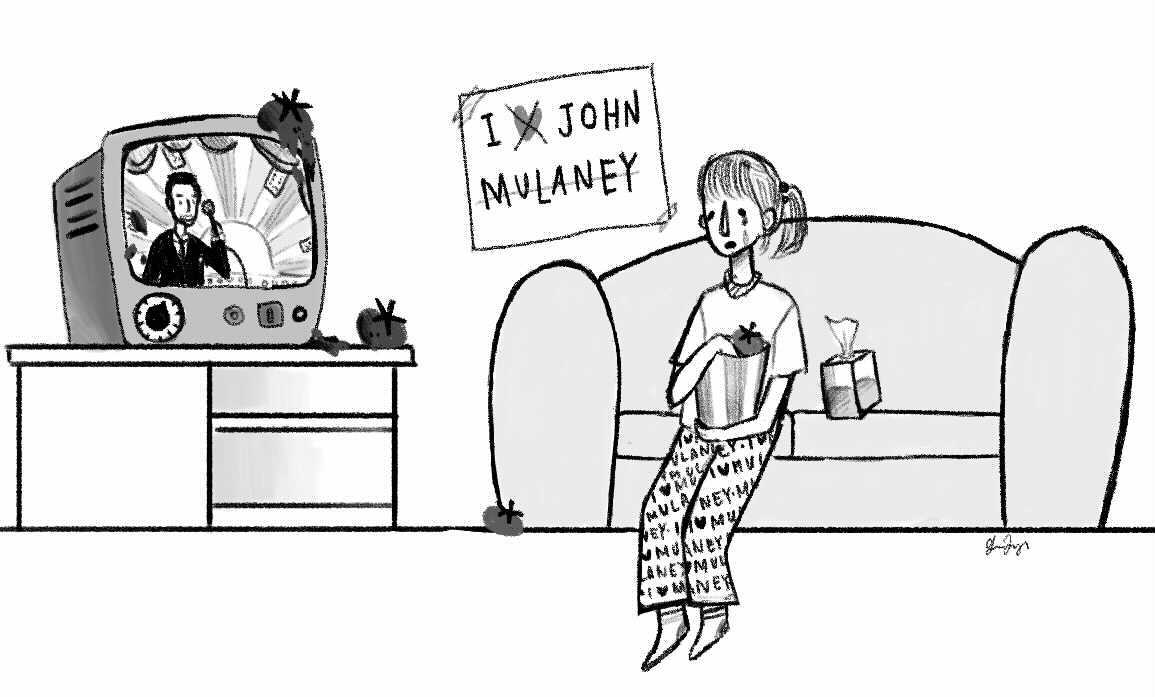Opinion: You do not know celebrities, so public obsession is stupid
October 8, 2021

Heartbreak. Sadness. Disappointment.
No, nothing bad really happened to me. I didn’t lose anything. I didn’t fail a test. I didn’t get broken up with. Instead, I received more shocking news: Immediately after his divorce, comedian John Mulaney was having a child with actress Olivia Munn. Mulaney, Mr. “That’s MY wife” who once had an entire bit centered around the fact that he and his now ex-wife didn’t want kids, had not only divorced his wife but was having a child with another woman.
Outraged, I stormed to Twitter and was quickly affirmed by thousands of other shocked fans. All of us reacted with a reasonable amount of anger at this distressing turn of events. Then, I opened up the other social media apps. With each platform I checked, I saw that Mulaney was trending as all of his fans expressed their disappointment and disdain with his behavior.
Video after video, Tiktok after TikTok, Tweet after tweet: Mulaney was getting absolutely torn apart.
I watched as a large portion of the internet turned its back on a man who once brightened my day with jokes. As the man who I once highly regarded and believed to be a genuinely good person only had more and more hate thrown his way, I started to feel conflicted. The backlash Mulaney faced only grew, but, the longer I thought about this fan reaction, the more unreasonable it felt. I mean, I’ve never met Mulaney. He’s never met me. He doesn’t really owe me anything. As I came to this realization, suddenly the vindication I once felt, watching as the rest of the internet reacted the same way I did, faded. As I looked back at the tweets and videos I liked, I asked myself if my reaction and if the internet’s reaction were acceptable. I asked myself if Mulaney really deserved this.
It wasn’t hard to answer these questions for myself. The answers were simple. No, this reaction isn’t acceptable. Mulaney is a real person with a private life where he can make decisions for himself. The choice to divorce his wife and start a family doesn’t have anything to do with us nor does it really have any impact on us. We don’t really know Mulaney. Anything we do know is limited to the few details he has given us in comedy bits or interviews. The anger and disappointment that I and many other fans felt were not warranted. He didn’t do anything to us.
But it felt like he did.
What I had failed to realize before was that I, like other avid internet users within fandoms, had taken the persona that celebrities and influencers promoted and became personally invested in them. I let myself become emotionally attached to Mulaney as the “nice-guy” comedian who loved his wife. I had formed a parasocial relationship with him where, as an audience member, I considered his celebrity persona to be my friend.
While this does seem unnatural, it is something that is becoming more and more normal every day, especially after the pandemic and the increased internet use that it brought. Internet culture only really reinforces this behavior. Modern-day celebrities and influencers are encouraged to promote the idea that fans have personal relationships and connections to them. Nearly all of them have established brands and personas that allow them to interact with and “directly” connect with their audiences. Youtubers call their fans their “family.” Celebrities have names for the fanbases like the “Beyhive” and the “Army” that make their fans feel as though they are part of a personally close community.
When celebrities are able to create a fanbase that feels connected or emotionally invested in them, they are inherently more successful. Just as we, in our everyday lives, are more willing to fully support our friends, fanbases that connect with their celebrity are more likely to promote and support them in any way that they can.
I understand why this would be enticing to a celebrity. Anyone would want a group of adoring fans who supports you to the ends of the Earth. Unfortunately, like most other things on the internet, this is a double-edged sword. As fans start to connect more with celebrities and support them more zealously, we start to over-consume their content to the point where any pieces of information, even private details, are spread around and sensationalized. We also start to expect more from celebrities. This behavior is often considered good thanks to the increased engagement that it brings.
The reality is that celebrities and influencers don’t owe us anything, especially not insight into their personal lives.
Parasocial relationships are, by definition, one-sided. The idea that we are friends with the people we consume content from isn’t a truthful—or healthy— one. Despite this, the situation with Mulaney isn’t a unique one. The term parasocial relationships has been around since 1956. For decades, celebrities have been placed into a position of friendship with their audiences. From the British Royal Family, to Justin Bieber, and even to Minecraft Youtubers, we have tricked ourselves into thinking that we have a relationship with them that requires them to provide us with entertainment, content, or information. When these celebrities don’t keep up their end of what fans perceive as the “bargain” or if they break out of the expectations we have of them (like Mulaney being the “nice guy”), we crucify them.
This shouldn’t happen.
As we navigate social media and an internet that seems to only promote celebrities who are personalities, it is important that we keep this in mind. We shouldn’t raise celebrities onto a pedestal and we shouldn’t pummel them into the ground when they do things that contradict what we think of them. Instead, we should simply treat celebrities like everyone else—we should treat them like people.
After all, even in the digital age and through computer screens, the golden rule should still apply: Treat others the way you wanted to be treated.


